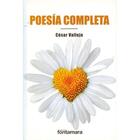
The literary work, particularly the poetic work, of César Vallejo has, over time and after his death, turned him not only into one of the most distinguished figures of Latin American poetry, but also of universal creation. Saúl Yurkievich states that “Vallejo’s conception is the opposite of romantic idealism, of spiritualist aestheticism… And from there comes that paradox of Vallejo, which is characteristic of all artistic creation: the search for the greatest proximity, the greatest lived fidelity, on the other hand, the conviction that reality is not a sufficient principle of reason for the word, that words are not neutral images of things, but that discourse always preserves a special margin of autonomy. Poetic truth is not subject to proof or verification, but to its own processes, to its pertinent relations.”








